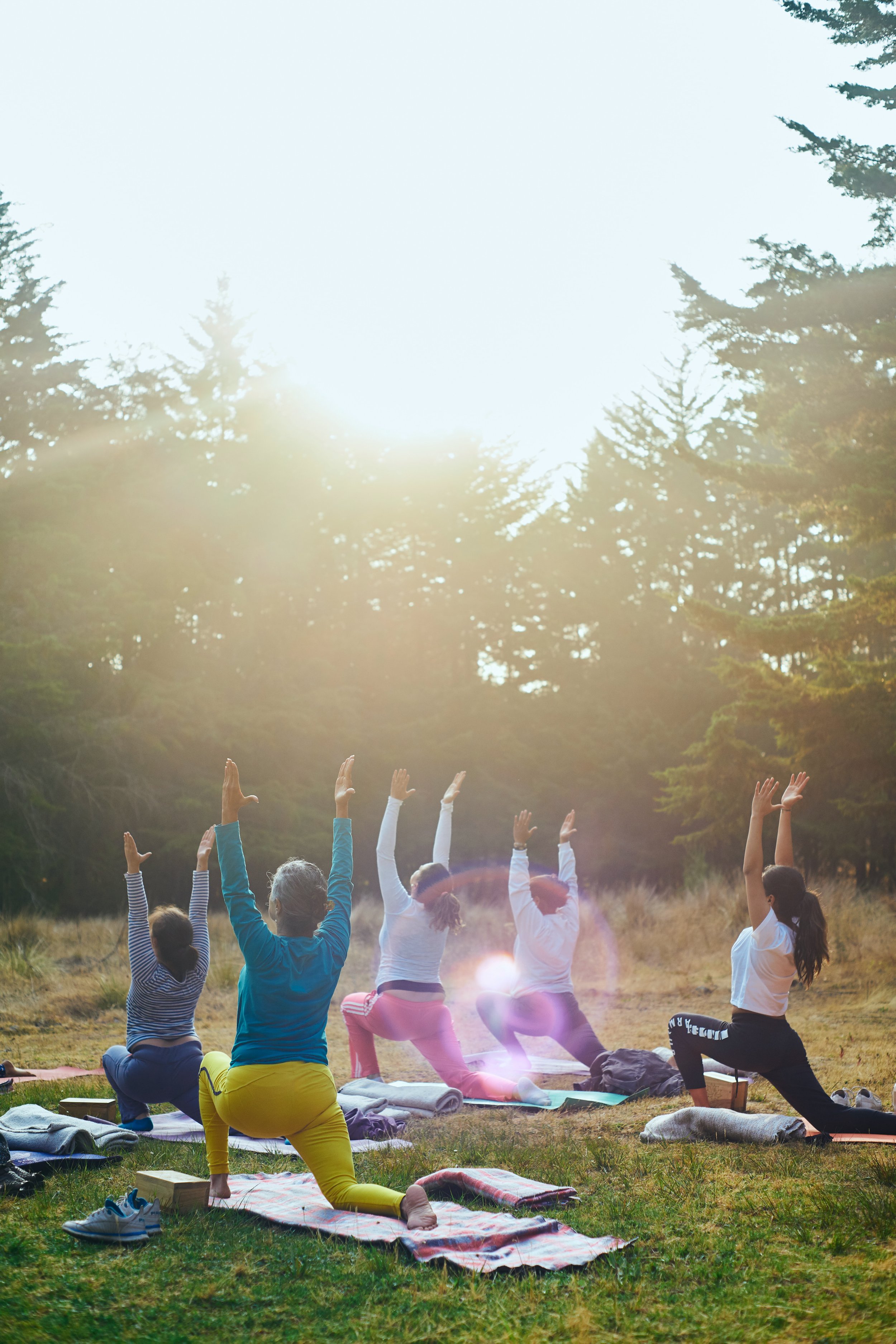Afraid of getting addicted to yoga?
Exercise addiction is a reality and – for more and more people – a problem. Many of us are avid yoga practitioners. Can yoga also trigger exercise addiction?
To find the answer to this, we first need to look at what exercise addiction entails.
What is exercise addiction?
Many, but not all of those who suffer from exercise addiction have body image disorders and / or eating disorders. Exercise addiction is defined as an unhealthy obsession with exercise and being fit. Those who are addicted to exercise have a lot in common with other addicts.
They...
- are obsessed with exercise
- exercise even if it causes physical harm
- exercise even if they really want to stop
- hide that they are exercising
It is estimated that about 3% of people who go to the gym have exercise addiction. Among runners, the figure is possibly closer to 25%.
Exercise addiction is harmful. Instead of improving your life, it will cause you more problems, for instance injuries or exhaustion.
What causes exercise addiction?
When you engage in physical activity your brain releases neurotransmitters such as endorphins and dopamine These are the same neurotransmitters that are released if one abuses drugs. An exercise addict feels reward and joy when they work out. The duration is short and when the training is over, the neurotransmitters disappear. An exercise-dependent person must therefore exercise more and more to trigger the release of neurotransmitters in the brain.
Exercise addiction usually begins with a desire to get really fit. Those who have an underlying eating disorder, such as anorexia nervosa or bulimia, may more easily turn normal exercise into an obsession. The same goes for those who suffer from body image disorders.
So, what about yoga?
Can you get this hooked on yoga? If you're a woman and practice yoga regularly, you may breathe a sigh of relief. A group of researchers in psychology and sports medicine in Budapest have studied whether we run the risk of our yoga becoming addictive.
Yoga is popular, and it's easy to enjoy — and wish for — a daily practice. But is a daily practice the same as an addiction?
No, according to the researchers.
The subjects were 215 women who had been practicing yoga for at least 3 years, twice a week or more. They were scrutinized (the researchers’ own words!) on their level of harmonic passion, compulsive passion, risk of exercise addiction, and other yoga-related measures.
Only 2 of the 215 women were at risk of developing exercise dependence (less than 1%). For example, they felt guilty if they didn't get on the mat one day, or they practiced yoga even though they were injured.
(A sidenote: The report doesn't say anything about whether these injured yoginis were in bed practicing yoga nidra. In my opinion, this is quite different from pushing through an ashtanga class with a wonky shoulder…)
The researchers also found that those who regularly practiced pranayama (breathing exercises) scored higher on harmonious passion, weekly yoga practice, and posting yoga messages on social media (yes, they studied this too) in comparison to those who did not, or only rarely, practiced pranayama.
The women reported that they mainly practiced yoga because of their health and also for the social aspect.
The final finding of the study was that the women who had a more intense passion for yoga also shared more about yoga on social media.
And I guess that is why you can read my summary of this research right here on Nancy’s blog: I am passionate about yoga!
Love from Gunn Helene
Sources:
About the author
Gunn Helene Arsky is a yin yoga teacher and studio owner residing in Halden, Norway. She also has a master’s degree in nutritional physiology and uses this in her holistic wellness coaching for women.
She has written a dozen books on nutrition and wellbeing for women. Her book, Yoga and Diet: The Mindful Connection, is available both as a paperback and eBook here.
In her online course by the same name, she expands further on the connections between yoga and mindfulness on the mat as well as off the mat. Check it out here.
Connect with Gunn Helene on Instagram: @bakingyogi


